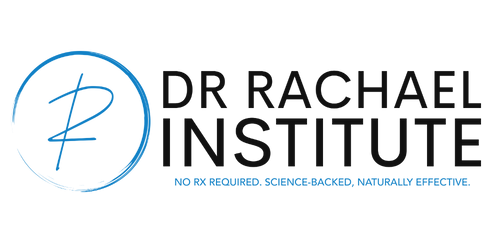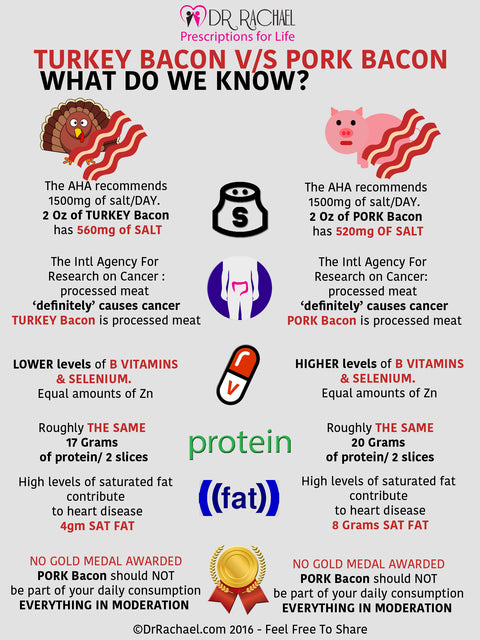The announcement rings in loud and clear at brunch as badge of ‘bougie’ healthier living, “Oh, I don’t eat pork…do you have turkey bacon?” Over the past few years, this badge has become somewhat of a cultural phenomena. Poor pork has become almost ridiculed and pigeonholed into becoming something that only misinformed, socio-economically disadvantaged people, or elder misinformed people consume. In reality, turkey bacon is not any healthier than pork bacon.
Processed Meat & Cancer: Both bacon types are processed meat. The cuts of meat are processed, infused with salt, and additional curing ingredients are added to accelerate the curing process and to add color. That’s how the meat gets it’s smoky flavor. Bacon is just one type of processed meats. Other types include hot dogs, turkey dogs, ham, bacon, sausage, and some deli/lunch meats. The International Agency for Research on Cancer (IARC), and branch of the World Health Organization, classifies all processed meat as a carcinogen, something that causes cancer. Whether it is chicken, turkey, beef, pork, bison, venison, rabbit, goat, or any other meat, if it has been salted, cured, fermented, or smoked, it is considered processed.
The IARC reviewed over 800 studies to determine that that eating 50 grams of processed meat every day increased the risk of colorectal cancer by 18%. So for people that eat four slices of turkey or pork bacon a day, a turkey or beef hot dog a day, or even 4 slices of lunch meat on their sandwiches daily, this information is important to note, particularly if you have a family history of colon cancer. I want to clarify what this really means because I don’t want to create mass panic over your lunch-meat or your turkey bacon. This 18% increased risk means that the average lifetime risk of developing colon cancer is 5%, but the risk increases to 6% if you eat more than 50 grams of processed meat each and every day.
The IARC has classified red meat as a probable carcinogen. They consider red meat to be mammalian muscle meat, beef, pork, lamb, and goat, something that probably causes cancer. So if you want to reduce your risk of developing colon cancer, pancreatic cancer, and prostate cancer, you should consider limiting all forms of red meat, and not just pork.
Bacon & Sodium Content: Now let’s talk salt/sodium. Unless you’ve purchase reduced salt/sodium turkey bacon, two ounces of turkey bacon have slightly more salt/sodium than to two ounces of pork bacon (560 mg Vs 520 mg). Starting the day off with two ounces of turkey bacon, means that your breakfast actually contains more than 1/3 of the sodium than The American Heart Association recommends that you consume for the entire day. The AHA sets 1500mg of sodium as the ideal daily sodium limit.
Eating in Moderation: It’s important to have perspective. Like any and all things, you should eat either turkey bacon or pork bacon in moderation. Even though daily consumption of red meat and processed meats have been linked to cancer, an occasional hamburger, hot dog, or a slice of bacon probably isn’t going to kill you. But if you want to achieve total body wellness, the recipe includes: leading an active lifestyle, learning how to relax, surrounding yourself with as much love as possible, and eating a diet rich in whole foods like veggies, fruit, nuts, beans, fish, and lean cuts of white meat. Pork is not the enemy, overindulgence is.
So I’ve put together this little image for you to share with all of your friends and family members that feel as though they have won the health revolution by swearing off pork. Feel free to download it, click share below, and or print it! I am taking the issues and conversations I have with my own patients and making the information available to you. So leave me your email address so I can help keep you informed.



